Shocking facts about UK employee loyalty

Did you know that just 22% of employees feel their employer is loyalty them?
This is a sharp drop from the one in three who said their employer was loyal to them back in 2010.
I can’t say I am hugely surprised by these stats which emerged from Metlife’s 2015 UK Employee Benefits Trends Survey (email [email protected] to ask for the full report):
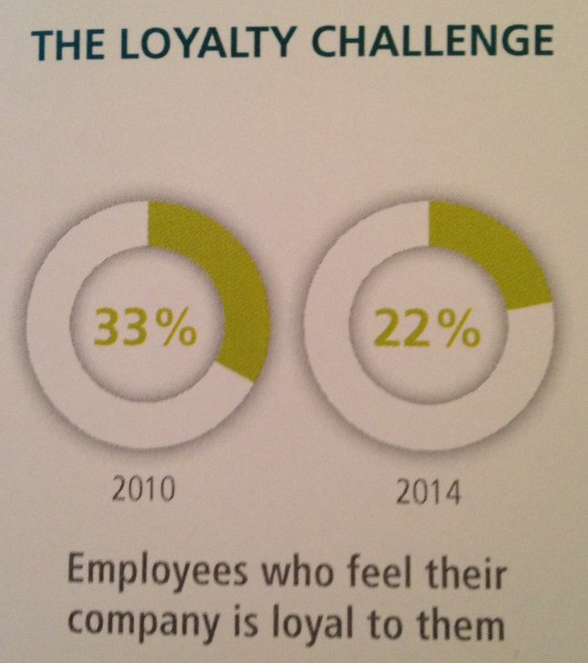
There is a feeling we have all been treading water for the past few years, holding onto jobs until things got better and gritting our teeth at low or no pay rises.
But now the mood is changing so employers have a problem on their hands.
This month the TUC crunched the numbers from the Office of National Statistics’ Annual survey of hours and earnings and found that the average worker saw a £2,500 fall in real time wages between 2010 and 2014:
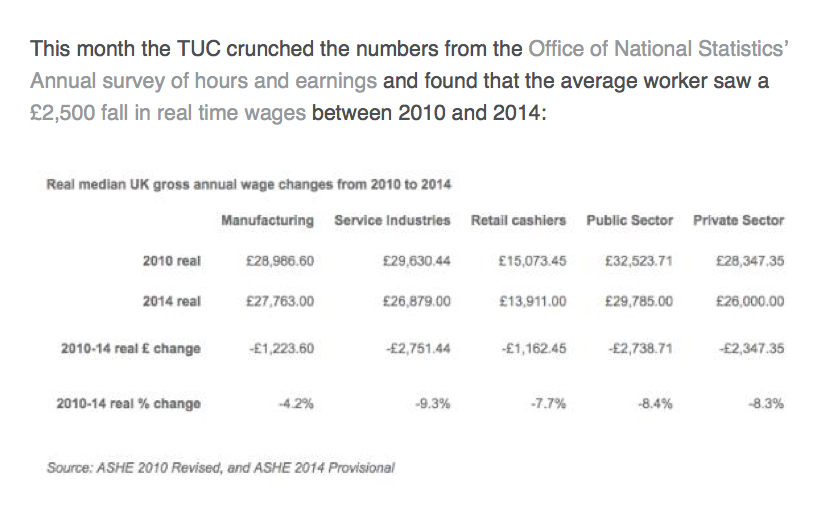
It might not be your employer’s fault, but if you feel hit in the pocket you are going to get grumpy with your paymaster.
So, of course it is no surprise to see that 79% of the respondents to the Metlife survey said an increase in salary would motivate them to stay:
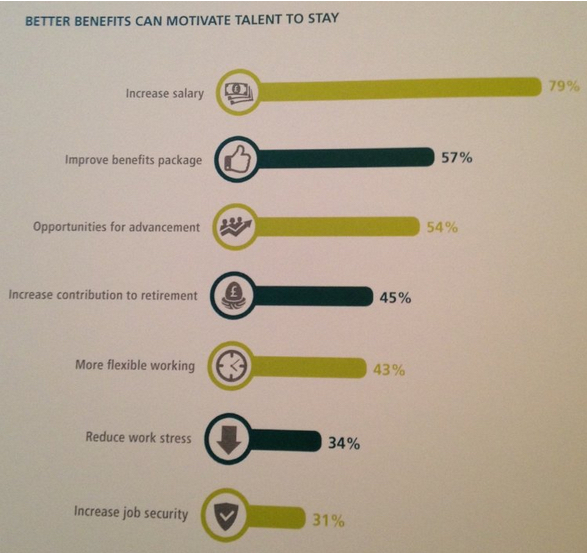
People would say they want more money, wouldn’t they? But this time, it feels more serious, especially among the low and middle earners. So employers need to put their thinking caps on.
One idea is to talk to staff. There is a significant disconnect between the number of employees who feel their employer is loyal to them (the aforementioned 22%), and how many employers feel loyal to their employees (40%), again according to the Metlife research:
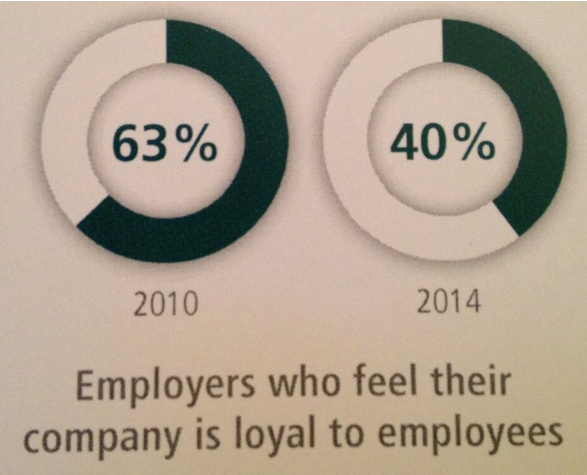
So if your organisation is in fact loyal to its staff, tell them so. It is a lot cheaper than increasing salaries. But beware that talk can be seen as cheap if it isn’t backed up by action.
So what are the other options?
Employees want to learn and they want to advance. This should be brilliant news. Employers often complain about lack of skills, so the answer is to grow your own. In fact there is a danger if you don’t.
Let me explain what I mean via two further graphs that caught my eye this week.
Roffey Park’s The Management Agenda 2015 found that employees are way ahead of employers when it comes to being digitally savvy and most believe their employers need to up their game. Perhaps the solution to any digital/technology skills gaps are the people already employed by organisations who need training up:
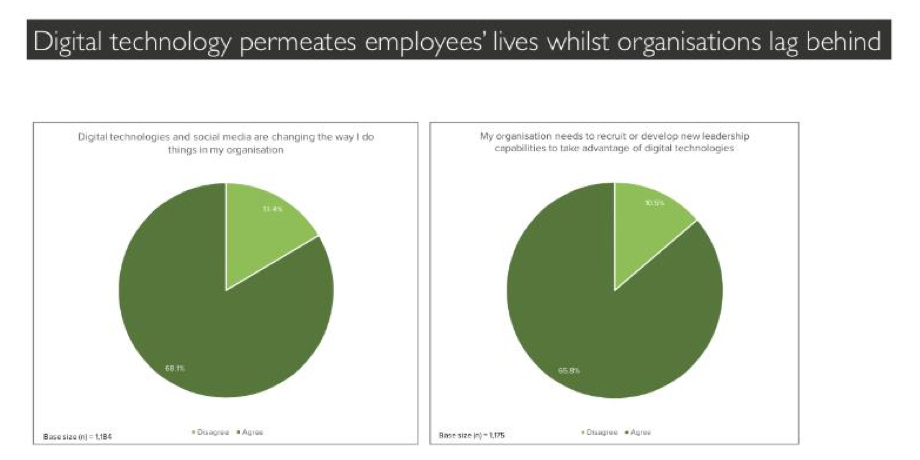
The other Roffey Park graph that is worth noting is what a killer ‘lack of promotion prospects’ is to loyalty. It is even worse than lack of pay increases:
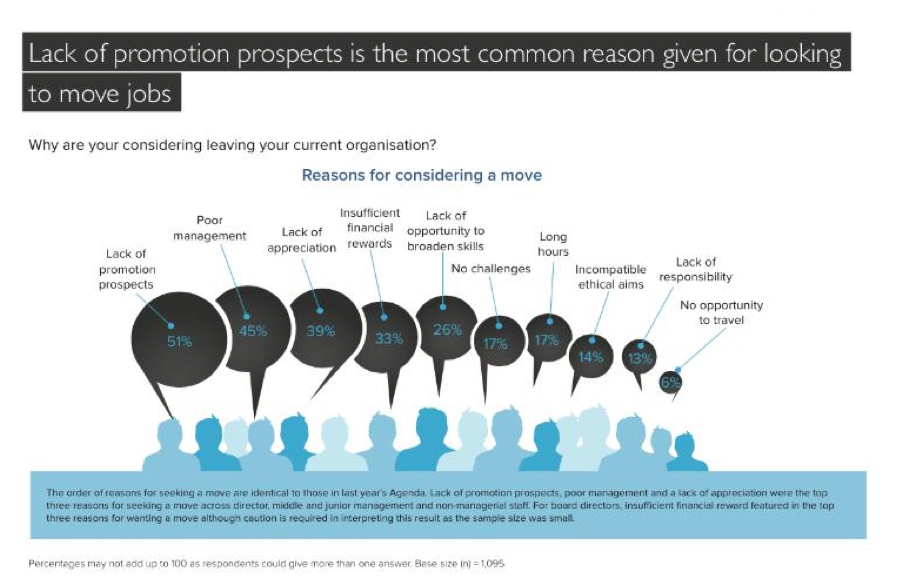
In many sectors our organisations and workforces need to change shape to meet new demands, many employees are keen to learn and upskill. So retraining, coaching and developing might be the best ways to show your loyalty to staff.
It is certainly a more realistic and sustainable option than throwing cash at them or trying to parachute in the new skills you need.
What do you think?






